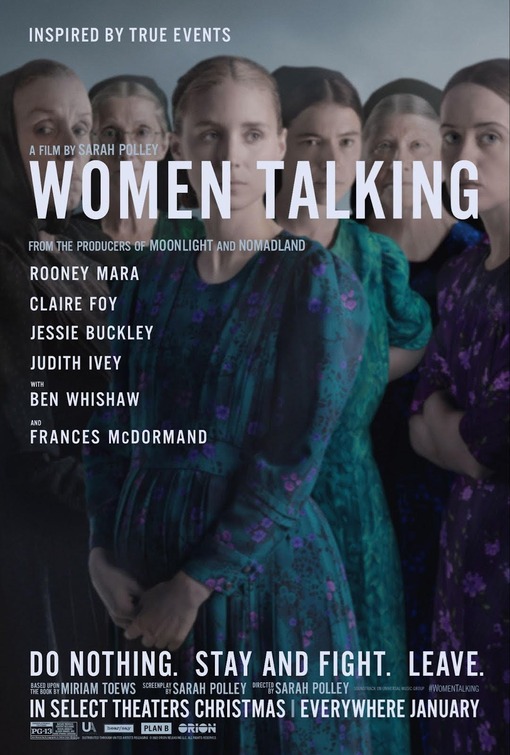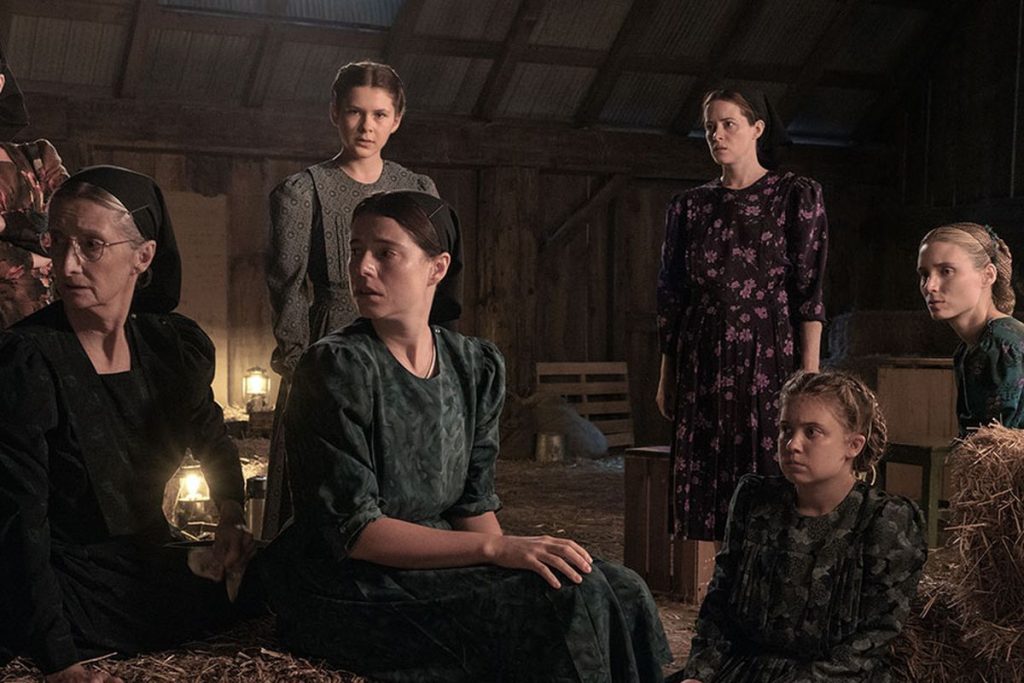
From its title, you expect an inspirational tribute to female empowerment. Sadly Women Talking is more frustrating than satisfying. Here’s why.
This chronicle is based on a scandal that occurred among the Mennonites of Manitoba Colony. Mennonites are Christians formed during the Protestant Reformation. Neither Catholic nor Protestant, they are often closely associated with the Amish but an entirely separate entity. This particular religious community of European descent resides in the eastern lowlands of Bolivia. Inspired by actual events, the incident was recounted in the novel of the same name by Miriam Toews. Between 2005 and 2009, over a hundred girls and women woke up to discover that they had been raped in their sleep. At first, the men told them it was the work of ghosts or demons. Ultimately the perpetrators were caught in the act. The victims discovered that men in the settlement had sedated them with cow tranquilizer. The felons were eventually arrested by local police and taken to jail.
Women Talking is simply that, a discussion amongst mothers, daughters, wives, grandmothers, and children. Understandably, they were outraged. The unspeakable crimes have mainly occurred before the film’s outset, although we see some individuals waking up with bruises and no recollection of what happened. The remaining men have now gone to town to bail the criminals out. They have instructed that the women must forgive their abusers before they return. If they do not, they will be forced to leave the colony and “denied entry to the Kingdom of Heaven.” Oh boy. Are you frustrated yet? It gets even more maddening. The female survivors have assembled in a barn. They have three choices, of which they will pick one (1) Do nothing, (2) stay and fight, or (3) leave.
A celebrated cast breathes life into a dreary debate set on a theatrical stage. Rooney Mara, Claire Foy, Jessie Buckley, and Judith Ivey present a variety of personalities. They imbue director Sarah Polley’s screenplay with confidence. Producer Frances McDormand also appears as a woman less aligned with the other protestors. She’s onscreen for perhaps 5 minutes. Meanwhile, Ben Whishaw portrays a quiet schoolteacher smitten with Mara’s character. He’s also on hand as a sympathetic representative of the patriarchy who can read and write, unlike the women. He’s ostensibly here to take down the notes and indirectly remind us that “not all men.”
The artificial construct of Women Talking is not without precedent. 12 Angry Men famously threw a group in a room and had them argue. That outstanding drama focused on the questionable guilt of an accused. In this account, there is no doubt. The men are clearly guilty, and the dialogue examines what to do. That changes things considerably. The eight endlessly pontificate on their various options. One’s enjoyment will be how much you appreciate listening to indecisive people speak in circles about an issue for 104 minutes but not do anything. I had hoped that “stay and fight” might include securing machine guns and mowing down their violent attackers. I wondered what an actress like Sigourney Weaver or Linda Hamilton might have done in a movie 35 years ago.
The persecuted gather for a well-meaning drama of morally unimpeachable politics. The ladies finally make a decision, but it’s too little too late. It fails to provide the necessary catharsis, a moment where horrific crimes are thoroughly addressed. Dear ladies, actions speak a lot louder than words. Or, to put it another way, “women doing” is more inspiring than “women talking.”
11-30-22


4 Responses
Boring…..very frustrating. 2 ⭐️
A “D” for depressing, disconcerting, discouraging, and disheartening.
Nice review, I’ve seen others bring up the movie 12 Angry Men in comparison. Not all movies need to be entertaining to be good, but there should be payoff, right? This just sounds like it will infuriate me
Yup. Indecisiveness followed by a weak decision. I was exasperated by the end.